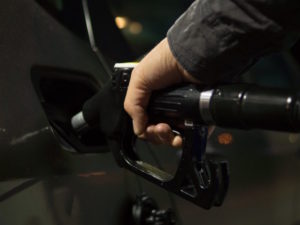Latest Advisory Fuel Rates leave 70% of drivers out of pocket
Fleets are being urged to consider changing to actual cost reimbursement for fuel as new figures show the majority of drivers are losing out under latest Advisory Fuel Rates (AFRs).
Introduced for payments from 1 March 2019, the new AFRs saw the rates for all bar one band go down by 1ppm and follow falls in pump prices.
Yet, according to new figures from fuel management and business trip data specialist TMC, whereas there was previously a 50-50 split between drivers who profited from the AFR and those who lost out, under the new lower rates, around 70% of drivers lose out.
In response, TMC has said there is more to consider than just pump prices when it comes to AFRs.
Paul Hollick, TMC’s MD, said: “The miles per gallon vehicles are achieving largely affects the cost per mile. As a result, many drivers aren’t recuperating their full fuel costs, which is reflected in a poll of fleet managers taken last month, that found three-quarters of respondents don’t think the new rates reflect the real cost of fuel.”
The firm’s comments are backed up by its analysis of detailed fuel card transaction data and audited mileage reports from a sample of 10,000 cars, predominantly new clients, on its mileage capture database. The price of petrol and diesel implied by the HMRC rate was then calculated:
* Real world fuel cost based on actual MPGs of sample 10,000 cars on TMC Mileage Capture database and UK average petrol and diesel pump prices during week commencing 1.3.2019
|
TMC average real-world fuel cost* |
Average UK Fuel price on 1 March 2019 |
Fuel price implied by PREVIOUS AFRs |
Fuel price implied by NEW AFRs |
||
| Diesel |
Pence per mile |
£ per litre |
|||
|
|
Under-1600cc |
10.9 |
£1.30
|
£1.19 |
£1.19 |
| 1600-1999cc |
11.9 |
£1.31 |
£1.20 |
||
| Over-2000cc |
14.0 |
£1.30 |
£1.21 |
||
| Petrol |
|
||||
|
|
Under-1600cc |
12.2 |
£1.20 |
£1.17 |
£1.08 |
| 1600-1999cc |
14.8 |
£1.21 |
£1.13 |
||
| Over-2000cc |
19.6 |
£1.35 |
£1.28 |
||
The new AFRs mean a typical company car driver went from break-even to making a loss on fuel costs after 1 March. Drivers of small petrol cars are worst hit. The new AFR for under-1400cc cars equates to them paying £1.08 per litre for petrol when the prevailing price was £1.19 per litre.
At the other end of the scale, drivers of petrol cars over-2000cc, who on average made a profit of 2.4p per mile before 1 March, still receive nearly 1.5p per mile more than their actual average fuel cost – a “baffling” move, according to TMC.
For those drivers who are losing out, TMC said that even a lighter touch on the accelerator may improve their MPG enough to offset the cut in fuel expenses.
However, the firm also said that switching to actual cost reimbursement – which sees drivers reimbursed based on the actual cost of their fuel and is increasingly being used by fleets – would help eliminate the pitfalls surrounding flat-rate fuel expenses while also giving businesses key visibility over their business trip data, which they can use to drive cost savings.
Hollick added: “Our employee service team speak to drivers who use expensive fuel stations to highlight nearby cheaper alternatives. They also speak to drivers achieving low MPGs about their driving style and suggest ways they might improve their driving efficiency to minimise cost and emissions.”













